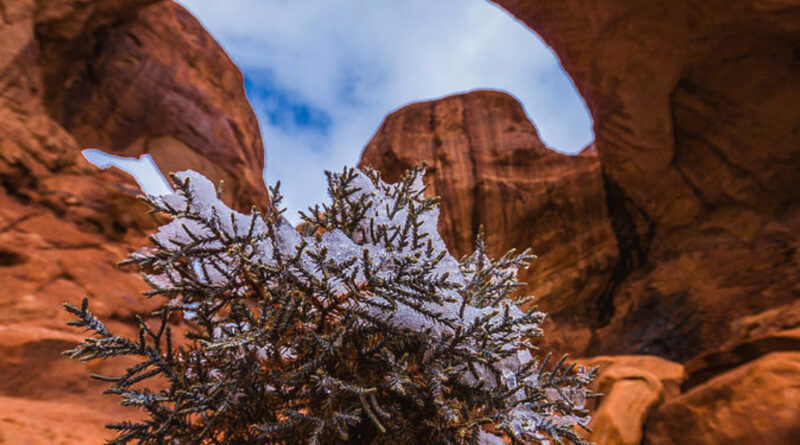Utah Wants To Take Over Public Lands, Give The Fossil Fuel Industry A Gift
A recent article at Outside tells us the story of a really beef-headed lawsuit the State of Utah recently filed against the federal government. In the lawsuit, the state claims that the feds (specifically the Bureau of Land Management, or BLM—not to be confused with the other BLM) are unlawfully holding onto most of the state’s land. They claim that this “unappropriated” land should be given to the state. But, as Outside points out, they’re flat wrong.
Some Background
Arguments about federal land are common in conservative western states.
Because these states were largely unsettled by people of European descent at the time they became part of the United States, the federal government ended up in ownership of most of it. Settlers got title to a small percentage of the overall acreage, which was fine because the land was so big and the population was so low. Later, portions of the land were set back aside for the use of Native American tribes, with much of the rest becoming national forests, national parks, national monuments, and other protected spaces.
But, a good bit of this land is simply federal land, without any kind of protection or special management designation. These vast chunks of land are known by outdoor explorers as “BLM Land,” because it’s all managed by BLM. Most BLM-managed land is open to the public for outdoor recreation, camping for up to two weeks at a time, horseback riding, target shooting, off-roading, biking, and other fun uses.
It’s also possible to lease portions of the land from the government for mining, ranching, and other economic uses if you satisfy the requirements and pay the fees. Many of the vast ranches in the United States have a small amount of privately-owned land with a ranch house and pens, and a vast leased area for grazing, for example. Many oil wells are also located on leased land, sometimes overlapping ranch operations.
But, those economic uses can be a little tough and sometimes impossible to get a lease for. The federal government is subject to environmental protection laws that limit what people can do when mining, drilling for oil, ranching, and more. Even people seeking to film Hollywood movies have to pay fees and avoid damaging the land.
Why Utah Doesn’t Like This Arrangement
The State of Utah has been seriously trying to gain control of public lands since the 1970s. Known as the Sagebrush Rebellion, a coalition of state governments, ranchers, fossil fuel companies, and others formed to oppose changes to land management that prioritized the environment more than commercial interests. This movement petered out in the late 198os when the Reagan Administration didn’t make it a priority.
But, resentment over federal control and environmentalism has been simmering more and more in recent years. There’s the well-known armed standoff between the Bundy family and federal authorities in Nevada that went from 1993 to 2018 (when many charges stemming from the peak of armed activity in 2014 were dropped). The same family was also involved in the occupation of the Malheur National Wildlife Refuge in Oregon after local ranchers were convicted of arson during a conflict with land managers.
At the far end, activists who demand land be turned over to the states don’t believe that any federal agency should control land, including things like parks, forests, monuments, and historical sites. The Utah lawsuit only aims to gain control of lands that haven’t been set aside for such purposes, likely because things like national parks are popular with the public.
Utah’s government feels that federally held land doesn’t benefit the state, but they don’t mention that BLM land greatly benefits local economies, bringing in travelers from around the planet. The state also gets what are called “payments in lieu of taxes,” where the state gets over $100 million annually to make up for not being able to levy property taxes on federal land.
Why Their Argument Is Flat Wrong
Arguments against federal land ownership and management often claim that federal land holding is unconstitutional or that land not set aside for some purpose must be given to the state due to the Tenth Amendment, or similar. Others make it sound like these large sections of land (totaling over ⅔ of Utah’s land area) are some form of theft.
But, none of that is true.
First off, the Constitution is very clear that Congress can own and control land. Article IV, Section 3, Clause 2 states: “The Congress shall have Power to dispose of and make all needful Rules and Regulations respecting the Territory or other Property belonging to the United States; and nothing in this Constitution shall be so construed as to Prejudice any Claims of the United States, or of any particular State.”
So, it’s an enumerated power, and clearly the province of the federal government. The Tenth Amendment doesn’t apply, in other words. Courts have ruled repeatedly that states can’t take the land over and that the federal government has the power to protect the environment before commercial interests.
It’s also true that the State of Utah (like other states) agreed to federal land ownership during the process of achieving statehood. In return for agreeing to not claim federal lands, the states were given millions of acres to be under state control, even if federal lands were much larger in area. So, the idea that the lands were stolen from the state are clearly false, even if people later decided they didn’t like it.
The Biggest Problem: Utah Would Be Forced To Sell Land Off To Oil Companies
In theory, the state could be a good steward of public lands. After all, Utah runs some pretty decent state parks and other recreation areas. Water issues aside, the state has been pretty good about protecting the bed of the Great Salt Lake. It’s well known that all of these things have great tourism value.
But these non-tourist lands the state government wants to take from the federal government are a very different story. The Outdoor article explains that the state constitution requires the state to achieve a balanced budget and that lands must be used profitably for the state. So, sooner or later, most of the land would have to be sold off instead of kept unless the state amended its constitution. Absent that, the only question Utah could legally consider is whether the state could make money with the land, with no room to consider local needs, tourism, or environmental protection.
Ultimately, Utah’s politicians know this, so the goal must be to give fossil fuel companies a giant gift. If they were honest, they wouldn’t claim it’s about states’ rights or local control. It’s all about taking care of campaign donors.
Featured image: Arches National Park in the Snow. Photo by Jennifer Sensiba.

Chip in a few dollars a month to help support independent cleantech coverage that helps to accelerate the cleantech revolution!
Have a tip for CleanTechnica? Want to advertise? Want to suggest a guest for our CleanTech Talk podcast? Contact us here.
Sign up for our daily newsletter for 15 new cleantech stories a day. Or sign up for our weekly one if daily is too frequent.
CleanTechnica uses affiliate links. See our policy here.
CleanTechnica's Comment Policy

